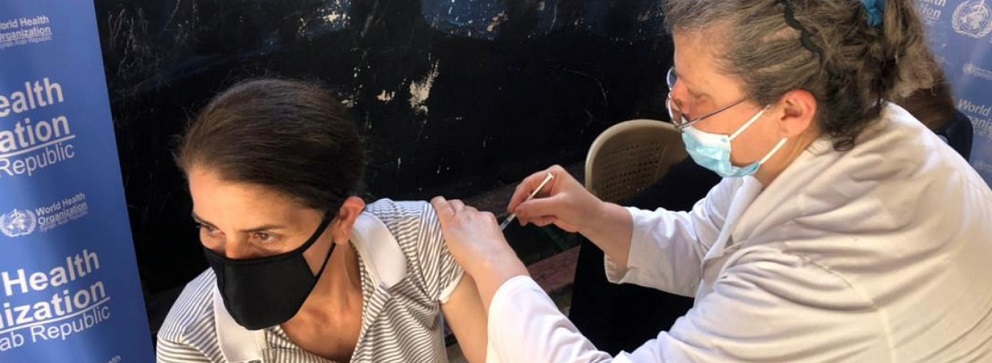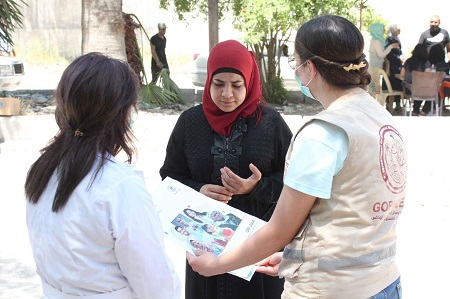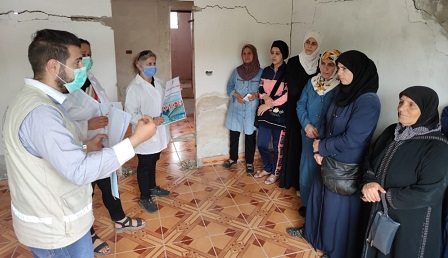
Damascus, 8 June 2022 – In a bid to increase the COVID-19 vaccination rates, Syria completed a 2-week intensified national campaign targeting over 2.5 million people across the country. Through more than 1000 fixed centres and 400 mobile teams, the campaign reached nearly every remote area in Syria to bring the vaccines closer to people.
In the coastal area, in Lattakia and Tartous governorates, WHO, together with 15 national and international community organizations scaled up their efforts by engaging community leaders, influencers, religious leaders, as well as 120 communication volunteers who accompanied vaccination teams to listen to communities, explain the benefits of vaccination and convince people about the importance of getting vaccinated.
“Everyone around the globe has been threatened by COVID-19, and the emergence of new variants continues to jeopardize the lives and livelihoods of millions. In Syria, people are well aware of the vaccines, however, low vaccination rates can be explained by challenges in vaccine accessibility and rapid spread of misinformation,” said Dr Hamza Hassan, Head of the WHO sub-office in Lattakia. “Making vaccines accessible to all communities and sharing accurate evidence-based information allowed us to increase the vaccination rates,” continued Dr Hassan.

Before the campaign, WHO enhanced the communication skills of volunteers of nongovernmental organizations and international nongovernmental organizations to deliver adequate messages based on behavioural change strategies and est community practices. On a daily basis, volunteers reported on their visits to households, factories, shops, companies and other places and shared stories of those who decided to get their vaccines.
Because of these engaging important endeavours in the coastal areas and other parts of Syria, the number of vaccinated people has doubled during the campaign. While the average weekly coverage before the campaign was around 40 000 people across Syria, the national vaccination campaign saw the numbers go as high as 80 000 per week.
“COVID-19 has taken away one of my close family members. I know about the gravity of the disease from my personal experience, and I have decided to take a vaccine. I would like to see all those vulnerable people vaccinated as we cannot afford more losses and more tragedies,” said Ahmad, a 39-year-old businessman from Lattakia.

Syria’s programme of immunization has always been exemplary across the Region. Nevertheless, the late arrival of vaccine doses into Syria, novelty, as well as the short expiry date for some of the vaccines, played a major role in the growing perceptions against the benefits of vaccination.
While the current campaign could not reach the intended 2.5 million target, it has demonstrated promising practices such as stronger partnerships with local community organizations, expanded media campaign and SMS messaging, as well as increased involvement of local influencers and health care workers.
The Syrian Ministry of Health, in partnership with WHO and UNICEF, will conduct the next round of COVID-19 vaccination campaign in late June. All health sector partners and other stakeholders are invited to contribute to the campaign.


